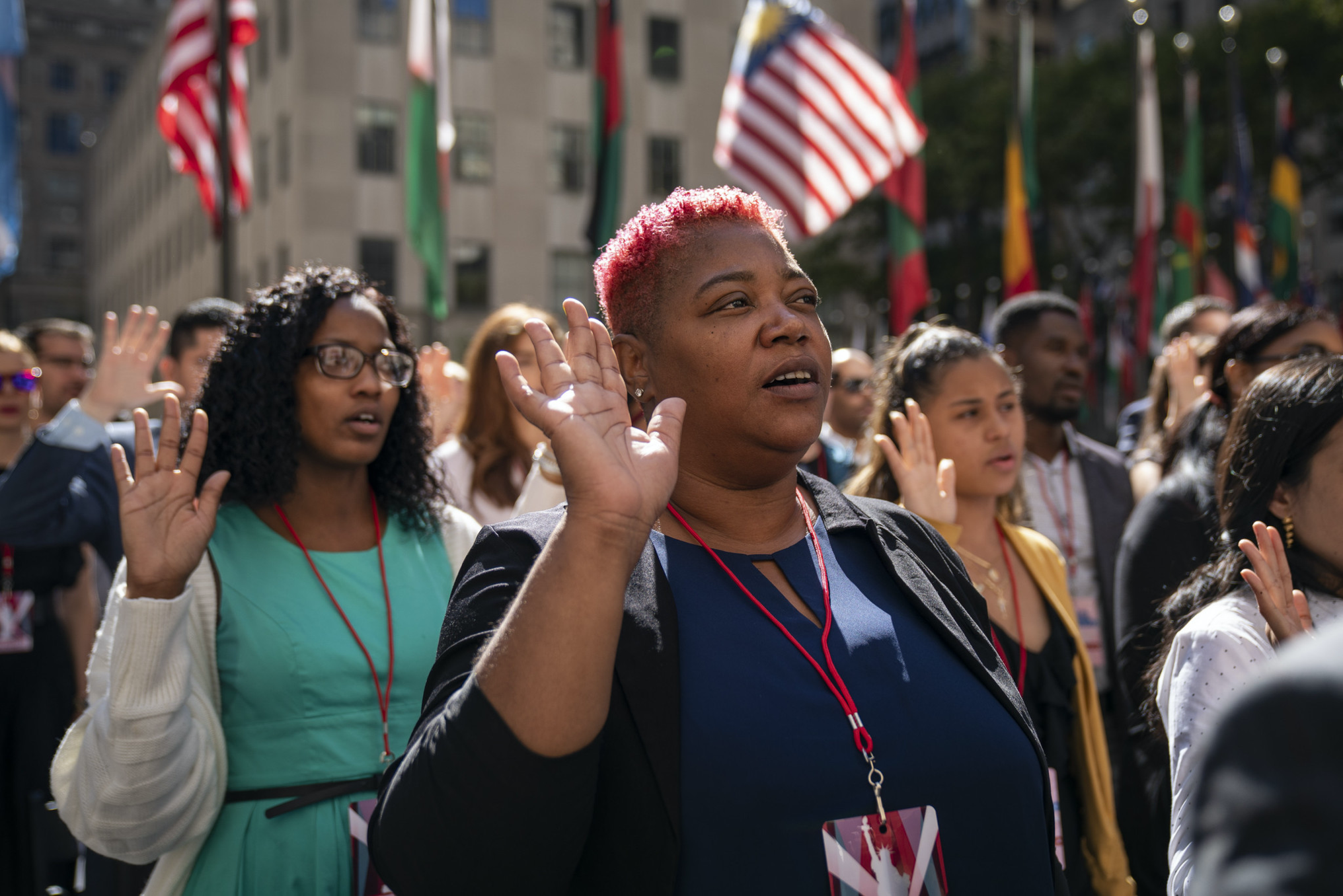The number of people who have officially given up their U.S. citizenship this year more than doubled the total amount from 2019.
Researchers said that people who renounce their U.S. citizenship often do so to avoid U.S. taxes or to escape national politics during the ongoing epidemic and under the administration of Republican President Donald Trump.
However, their statement ignores the fact that the numbers of Americans renouncing their citizenship also increased under Democratic President Barack Obama.
Under rules from the IRS, every three months the U.S. government must publish the names of citizens who renounce their citizenship. This year’s and last year’s names were analyzed by Bambridge Accountants, a New York-based firm that specializes in U.S. expatriates.
In 2019, a total of 2,072 U.S. citizens renounced their citizenship, but in the first six months of 2020, more than 5,800 U.S. citizens did the same—a nearly 180 percent increase.
“These are mainly people who already left the U.S. and just decided they’ve had enough of everything,” Alistair Bambridge, a Bambridge Accountants partner, told CNN. “What we’ve seen is people are over everything happening with President Donald Trump, how the coronavirus pandemic is being handled, and the political policies in the US at the moment.”

The firm also said it expects a fresh wave of renunciations if Trump wins re-election.
However, an even greater increase happened shortly after Obama’s re-election in November 2012.
In 2012, a total of 932 U.S. citizens renounced their citizenship. The following year, after Obama won re-election, the number shot up to 2,999—a nearly 221 percent increase. U.S. citizenship renunciations continued to increase during his second term, from 3,415 in 2014 to 4,279 in 2015.
Even though the highest number of renunciations under Obama was less than the highest number under Trump, it brings into question whether the presidency is the most influential factor compelling people to renounce their citizenship.
Newsweek contacted Bambridge for comment.
The graphic below, provided by Statista, illustrates the number of people who have renunciated U.S. citizenship.
Tax attorney Robert W. Wood has said he believes the 2010 Foreign Account Tax Compliance Act (FACTA) may actually account for a large number of the renunciations.
Wood and Bambridge analysts have both said that some U.S. citizens who have been living abroad will renounce their U.S. citizenship do so to avoid burdensome tax reporting requirements.
FACTA dramatically increased the the tax reporting requirements for U.S. citizens living abroad. They are now required by federal law to file annual tax returns and report all foreign income, bank accounts, investments, pensions and other financial details.
“Foreign banks are sufficiently worried about keeping the IRS happy that many do not want American account holders,” Wood wrote at Forbes. “Americans living and working in foreign countries must generally report and pay tax where they live… Many claim a foreign tax credit, but it generally does not eliminate double taxes.”
U.S. citizens who want to renounce their citizenship are required to pay a $2,350 fee to do so. Those living abroad must handle the matter in-person at a U.S. Embassy in the country of their residence.
Despite the increase of people renouncing their U.S. citizenship, far more foreign-born people become naturalized U.S. citizens each year. Every year since Trump’s 2016 election, roughly 740,742 foreign-born people have become naturalized citizens of the United States.
However, on August 3, the U.S. Citizenship and Immigration Services (USCIS) raised its fees for people applying to become U.S. citizens. The old fee was $640. The new fee is $1,160 online, or $1,170 by paper. USCIS also eliminated most of the fee waivers that allow immigrants to apply for free.
David Bier, an immigration policy analyst at the Cato Institute, a libertarian think tank that supports increased immigration, told USA Today that he believes the two recent changes will result in more foreign-born people deciding not to try and become naturalized citizens.
In a statement to The Arizona Republic, USCIS deputy director for policy Joseph Edlow, said, “These overdue adjustments in fees are necessary to efficiently and fairly administer our nation’s lawful immigration system, secure the homeland and protect Americans.”




